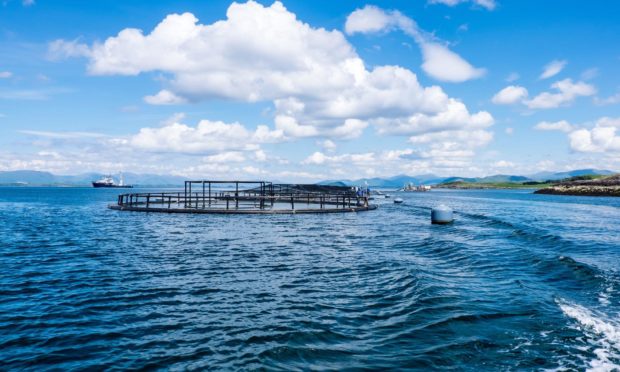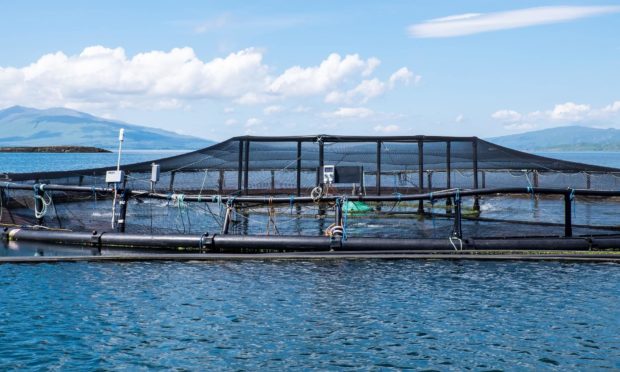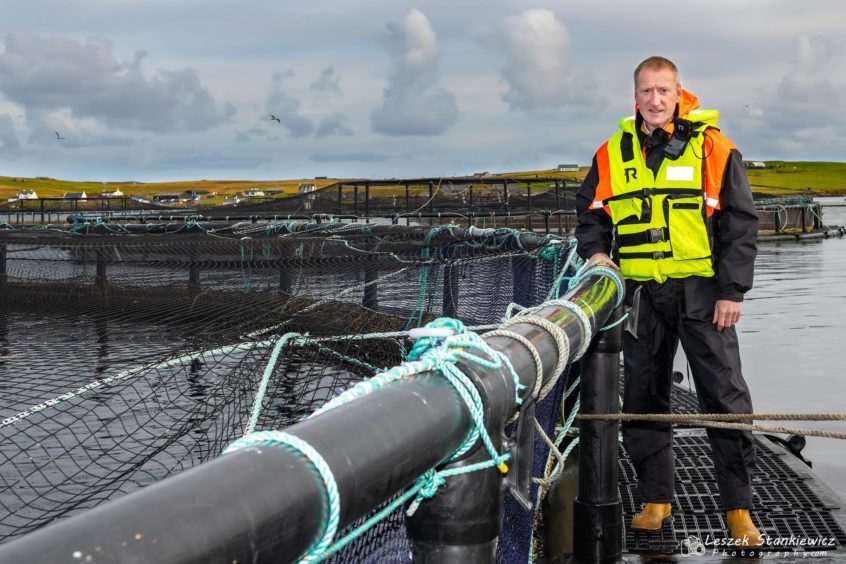Scotland’s salmon industry has defended its environmental and sustainability record, despite a recent incident that saw almost 50,000 farmed fish spill into the wild.
Following an “unprecedented” storm at sea earlier this year, a Mowi-owned fish farm dislodged from its moorings, causing a number of sea pens to move and more than 48,300 salmon to escape.
Industry representatives provided evidence to the Scottish Parliament’s Rural Economy and Connectivity Committee on Wednesday, where they were asked by MSPs for updates to the salmon fishing inquiry that concluded in 2018 with a number of recommendations.
Included in those was a request for farmed fish to incur fewer fatalities, reduce the amount of lice found on specimen and a mitigation of the environmental impact caused by the industry.
The Scottish salmon industry has been valued at almost £855 million annually to the country’s economy.
Company not happy with performance
Ben Hadfield, managing director of Mowi Scotland, said the company had chosen to move to more costly offshore salmon farms because of the environmental benefits.
He said: “It was a Mowi farm which lost 48,000 fish. There has been reductions in loss.
“But I will not sit here and say we are satisfied with our own performance. We have increasingly expanded in offshore, high-energy locations.
“We have done that because the hazard of sea lice to wild fish is a lot less. It helps improve waste assimilation and is generally a more sustainable place to grow the sector.
“It is, though, a challenging marine environment. We have put in a high standard of equipment. We have fantastic, skilled people working in these exposed environments.
“But I am disappointed in the escape event. We communicated what happened. It was an unprecedented event with high tide and we have put in integration tests.
“We have apologised but I wont try to say it’s not negative.”
Firm expects ‘impact to be low’
When asked if any of the 48,000 farmed salmon had been caught or traced, Mr Hadfield added: “When it occurs… in Norway and Chile there is a quick focus on recapture.
“We wanted to recapture the fish. We had equipment on standby for recapture and have skilled people. In regard to that escape at Carradale, we moved quickly to do it.
“The fish were immature, the rate of predation is immense. We have seen 400 fish in rivers from that group.
“We expect the impact to be low, but we are still not happy about it.”
We need people to eat more fish.”
Ben Hadfield
Mr Hadfield continued, saying the regulations governing Scottish salmon farming were some of the highest in the world.
“The risk of escape due to seal predation is high. One way it could help is if the regulators could move more quickly. We are disadvantaged against our global competitors,” he said.
“Salmon is one of the lowest producers of CO2.
“We need people to eat more fish. There is work to be done on logistics and packaging and improvement on how we dispose where mortality occurs.”
On board with environmental regulations
Former Shetland MSP Tavish Scott, CEO of the Scottish Salmon Producers’ Organisation, said members were willing to comply with the industry regulations, while pointing out how many are employed in the sector.
“In response to recommendations set out by the committee in 2018, we have set out in some detail how we haven’t just met the broad spread of recommendations, but how our members have invested in solutions.
“I would strongly suggest we have made the big shift in the directions wanted. On sustainability, we set out short-term principles and long term for member companies.
“These have been driven by widespread conversation with wider stakeholders… we have set out a net zero emissions (target) for 2045.
“We are aligning ourselves with the worldwide efforts on climate change.”

He added: “When we work in marine environment, we work with all other users. We are the most heavily regulated industry. We wish to sustainably develop, we are Scotland’s number one food export centre but we need to do that responsibly.
“It is very important to recognise 12,000 people work for 3,600 companies in 73 constituencies. People want us to be responsible and sustainable in our actions and we will do so in the charter we have just set out.
“We could not do anything were we not allowed and consented to do.”











